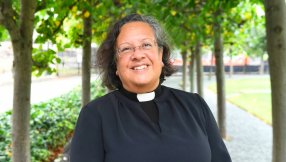How to grow a church is one of the major questions facing Christian leaders today. New research suggests 'success' in this area isn't primarily a question of theology or style, but instead it's about having an attitude of growth. The report, from the Centre for Theology & Community looks at 13 churches of different denominations, sizes and styles in east London. It found that, "The evidence of our research (and of the wider body of literature in the subject) is that growth which is both numerical and holistic is most likely to occur where it is intentionally pursued."
The decline in church attendance has been well documented over the past couple of generations. What hasn't been fully addressed is the way to arrest it and to grow churches. While some congregations are thriving and growing (and indeed whole streams of the Church and geographical areas are seeing growth) the general trend remains downwards. Finding the ingredients of the success of those that are growing is an important key to recovering the general confidence and capability of other churches to grow.
The research indicates that although many of the churches which are growing tend to be evangelical (and therefore evangelistic) a commitment to growth is actually more important than theological positioning or style of worship. The report says, "It is also clear that numerical growth is possible in a wide variety of church traditions. There is evidence –both from our own research and from the wider literature – that a key reason evangelical churches are growing faster is not that their theology is uniquely compelling but that it has led them to a more intentional pursuit of numerical growth."
The study examined the opinions of church leaders towards growth and found that around two thirds were keen to prioritise the numerical growth of their church. Among those church leaders there was enthusiasm for church growth but usually as part of a more holistic mission. One said, "If we go back to basics, our main goal is to affect the lives of people in God's name. The central goal of any church has to be about getting the message of Salvation that comes through Christ...the message of Salvation is most effective if we are showing that we care for the community that we are part of. Caring for our community is key to us."
A minority were less keen to pursue evangelism, not seeing it as a core focus of their work. One interviewee said, "Growth can be difficult, especially if people are damaged – it can be overwhelming. It becomes difficult for the church to hold them if they are."
The key to growing a church seems to be a desire to grow, rather than any specific style or theology: "It is interesting to note that there was a strong correlation between those who expressed a lack of interest in numerical growth and congregations which had not grown... In our sample, perhaps unsurprisingly, it does seem that the degree
of intentionality behind growth is related to the likelihood of growth."

Responding to the report, The Bishop of Chelmsford, the Rt Rev Stephen Cottrell dismissed the idea that churches need to choose between growing numerically and growing in depth and spirituality. He said, "Instead of talking about bums on seats, let's talk about disciples being made and hearts changed; or best of all, let's talk about lives transformed. It seems to me that the best way of answering the question, what sort of growth do we need, is not to say shall it be numbers or shall it be impact, or even to say shall it be both, as if these things were different from each other, but to say let it be growth in transformation. This is what we look for, and we see it happening in a number of different ways."
CTC's previous report examined church planting – the process where new members join an existing church as a group to give it new life. Now, the charity says it is hoping the new resource can be an encouragement for churches everywhere. "People often feel a tension between planning and letting the Spirit roam freely. A key message of this report is that the two are not – must not be – mutually exclusive! To be intentional about growth is an imperative if the church is to promote the fruitfulness of God's Kingdom."
The Bishop of Chelmsford says Christians should be looking for growth – and it doesn't preclude churches working for justice alongside those of other religions or none. "Certain faiths, not least Islam; and certain beliefs, particularly the new atheism, are unapologetic about their own missionary purposes," he writes. "We need not be embarrassed about our own... What is important is that we bear faithful witness to the truth as we have been called to live it and express it; and that we are prepared, even eager, to listen to and be challenged by the truths and insights of others."
















